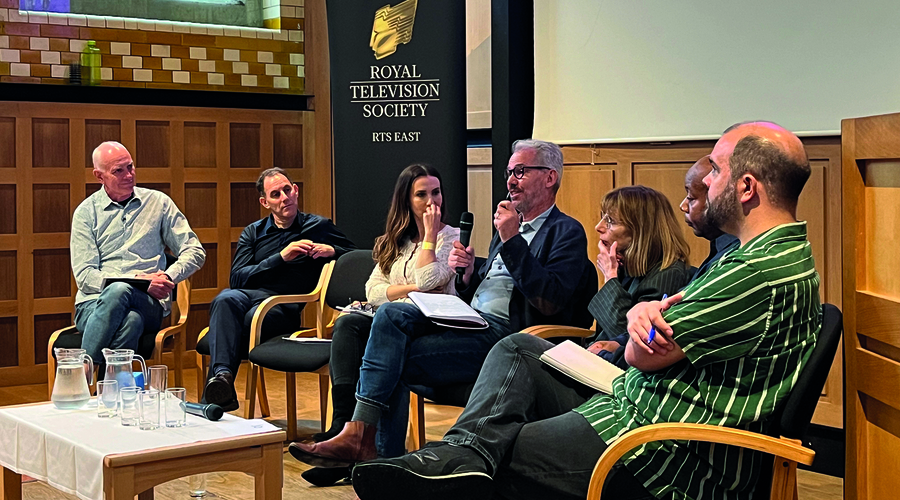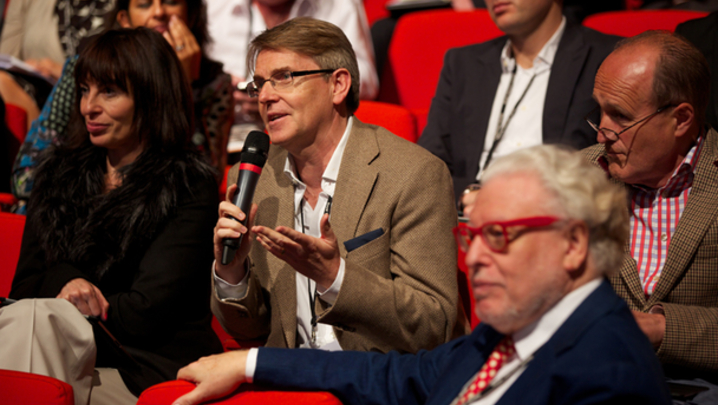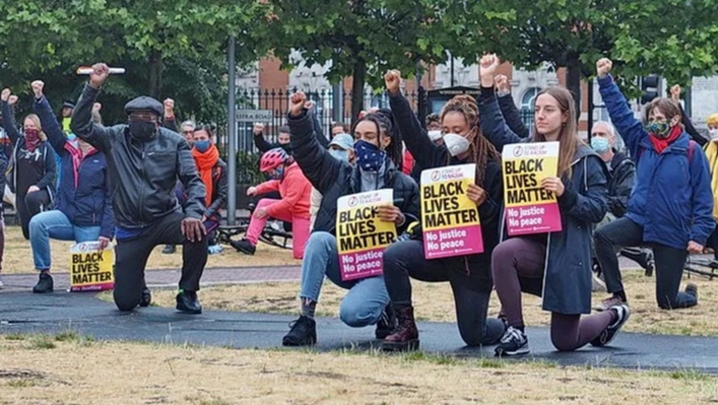Big, bold investigations. New talent. Noise and risk-taking. Stories that unite us. Head-turning shows with unprecedented access.
It’s quite a shopping list, but it’s a flavour of what broadcasters are looking for in factual programming, a panel of commissioners told an audience at an RTS East event in Cambridge last month.
Louisa Compton’s investigations unit at Channel 4 needed no more introduction than a brief clip of her recent Dispatches film on Russell Brand, but she stressed that, as well as seeking high-level, impactful investigations, she is looking for subjects to get people talking, such as Rebekah Vardy: Jehovah’s Witnesses and Me.
Her colleague Alisa Pomeroy at Channel 4 documentaries is on the lookout for bold stories, including those told “in granular detail which we watch like a drama”, such as Evacuation, about the British leaving Afghanistan.
ITV’s Jo Clinton-Davis said her brief is for “noisy”, connectable factual entertainment, including relatable franchises such as Long Lost Family that are ripe for spin-offs, shows that can sit comfortably at 9:00pm and those that appear to be telling one story but then reveal another. Grand Slammers, in which England’s 2003 World Cup-winning rugby team take on a team of prisoners, is a current example. It’s about rugby, said Clinton-Davis, but also prison reform.
Carl Callam at the BBC is keen to find new precincts beyond the blue lights and advised the audience to consider what might be key election issues. These stories should be “jaw dropping” and able to air across a multitude of BBC platforms.
Callam’s regional commissioner colleague, Mark Harrison, seeks “state of the nation” pieces for BBC Two and Three, and is flexible on how they are told – talent-led, such as Paul Whitehouse: Our Troubled Rivers or formatted such as Evicted.
National Geographic wants “best-in-class” factuals with unprecedented access. “We’re not open to the inauthentic but, other than that, anything goes,” commissioning editor Simon Raikes said. It must be gripping and preferably open to franchises and further box set spin-offs. If it’s host-led, then ensure the host has a mission or unique access, or is a specialist.
Daniel Pearl, who is about to leave Channel 5, advised keeping pitches simple. Simplicity is the hardest part of making TV, he said – get it right and you’ll catch our attention.
True Vision Productions’ Brian Woods chaired “Meet the factual commissioners”.







